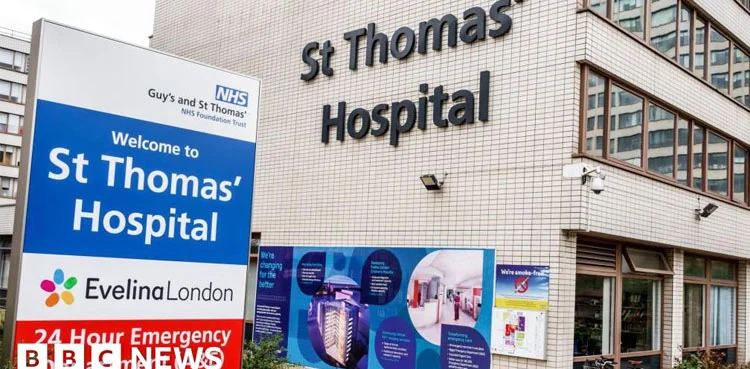London, UK – A series of cyber-attacks have recently targeted several hospitals in London, causing significant disruptions in medical services and leading to the cancellation of numerous operations. According to a report by an international news agency, these attacks have forced emergency patients from the affected hospitals to be transferred to other facilities.
The cyber-attacks have had a profound impact on the hospitals’ ability to provide essential services. Particularly affected are the systems responsible for blood transfusions and the delivery of test results. These disruptions have created significant challenges for medical staff and have raised concerns about patient safety and the overall efficacy of hospital operations.
Impact on Medical Services
The cyber-attacks have crippled critical hospital functions, most notably those related to blood transfusions and the communication of test results. These systems are integral to patient care, and their compromise has led to delays and cancellations of various medical procedures. The affected hospitals have had to divert emergency patients to other institutions, exacerbating the strain on the city’s healthcare system.
The Health Service Journal has indicated that the primary motive behind these cyber-attacks appears to be financial gain. Cyber attackers often target healthcare institutions due to the critical nature of their operations, making them more likely to pay ransoms to restore functionality quickly.
Broader Implications and Responses
The ramifications of these cyber-attacks extend beyond immediate operational disruptions. They highlight the vulnerability of healthcare systems to digital threats and underscore the urgent need for robust cybersecurity measures. The healthcare sector, given its reliance on digital systems for patient care, is particularly susceptible to such attacks.
In response to these incidents, there have been calls for enhanced cybersecurity protocols within the NHS and other healthcare providers. This includes the implementation of advanced security measures, regular system audits, and comprehensive staff training to recognize and respond to potential threats.
Global Cybersecurity Concerns
This incident is part of a broader pattern of cyber-attacks targeting critical infrastructure around the world. Recently, Indian hackers have been implicated in a series of espionage and cyber-terrorism activities against various countries. These attacks have included breaches of official portals and the extraction of sensitive information.
In Qatar, for example, Indian hackers targeted the official portal, leading to heightened cybersecurity measures in the country. This attack was particularly significant in the context of geopolitical tensions, following the execution of former Indian naval officers in Qatar on charges of espionage for Israel. This incident led to an increase in cyber-attacks against Qatari interests, highlighting the intersection of cyber threats and international relations.
The Need for International Cooperation
The growing frequency and sophistication of cyber-attacks underscore the need for international cooperation in combating cybercrime. Countries must collaborate to share intelligence, develop common cybersecurity standards, and take collective action against cybercriminals. There is also a pressing need to establish global regulations that hold perpetrators accountable and deter future attacks.
Calls have been made to ban accounts associated with Indian hackers, reflecting a broader demand for stringent actions against individuals and groups involved in cyber espionage and terrorism. Such measures are seen as essential to safeguarding national security and protecting sensitive information.
Establishing a New Cybercrime Agency
To address the escalating threat of cyber-attacks, there have been proposals for the establishment of specialized agencies dedicated to preventing cybercrime. These agencies would focus on developing and implementing advanced cybersecurity strategies, conducting thorough investigations of cyber incidents, and coordinating responses to attacks.
In October 2023, discussions about creating a new agency to combat cybercrime gained momentum following a series of high-profile attacks. This agency would be tasked with enhancing cybersecurity infrastructure, providing support to affected organizations, and facilitating international cooperation.
The recent cyber-attacks on London hospitals have exposed significant vulnerabilities in the healthcare sector and highlighted the urgent need for improved cybersecurity measures. As digital threats continue to evolve, it is imperative for healthcare providers, governments, and international organizations to work together to enhance cybersecurity defenses and protect critical infrastructure.
The broader context of these attacks, including the involvement of Indian hackers in various international cyber incidents, underscores the complexity of the global cybersecurity landscape. By establishing robust cybersecurity protocols and fostering international cooperation, we can better defend against cyber threats and ensure the resilience of essential services.



